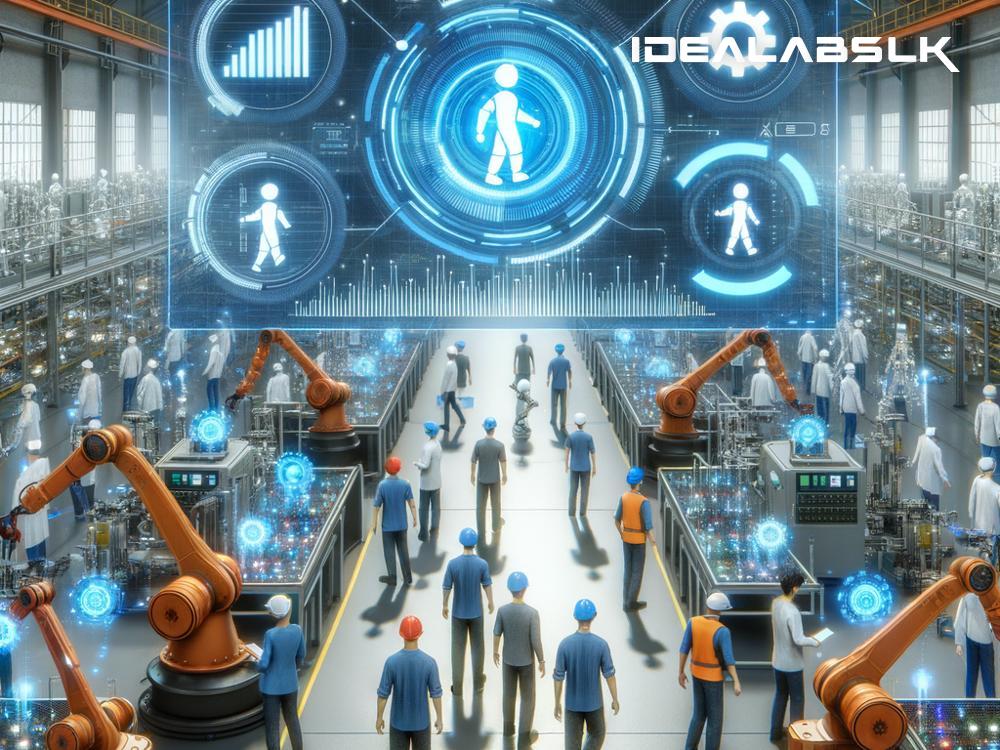Title: How Machine Learning is Transforming the Future of Manufacturing
Manufacturing has always been at the heart of the world’s economy, driving progress and prosperity. With the dawn of the digital age, this vital sector is undergoing a transformative shift, thanks in large part to advancements in machine learning (ML). This technology, which allows machines to learn from data and improve over time, is poised to revolutionize how we make everything from cars to cookies. Let’s explore how machine learning will shape the future of manufacturing, making it smarter, more efficient, and incredibly innovative.
Enhanced Efficiency and Productivity
Firstly, machine learning is all about making processes more efficient. In manufacturing, this means a lot. Imagine a factory where machines learn the most efficient ways to assemble a car, adjust themselves to avoid bottlenecks, and predict when they might break down to prevent production halts. This isn’t a scene from a sci-fi movie—it’s the reality of how machine learning is boosting efficiency and productivity in manufacturing. By analyzing vast amounts of data from the production line, ML algorithms can optimize every part of the manufacturing process, from supply chain logistics to the final assembly. This leads to a significant reduction in waste, lower production costs, and a faster time-to-market for products.
Predictive Maintenance
One of the most practical benefits of machine learning in manufacturing is predictive maintenance. Traditional maintenance schedules rely on fixed intervals or visible wear and tear, which can be inefficient and costly. Machine learning changes the game by continuously monitoring the condition of equipment using sensors and data analytics. By predicting failures before they happen, manufacturers can avoid unexpected downtimes and extend the lifespan of their machinery. This proactive approach saves money, enhances productivity, and ensures the smooth operation of the manufacturing process.
Quality Control
Machine learning also plays a crucial role in quality control, a vital aspect of manufacturing that ensures products meet certain standards. By training ML algorithms with data from past inspections, manufacturers can create systems that automatically detect defects or inconsistencies in products. This isn’t just about catching flaws; it’s about understanding why they happen and how to prevent them, leading to a consistently higher product quality. The ability to quickly and accurately identify issues not visible to the human eye improves customer satisfaction and reduces waste, making manufacturing more sustainable.
Customization at Scale
The demand for customized products is on the rise, but meeting this demand can be challenging for traditional manufacturing setups. Enter machine learning. With ML, manufacturers can efficiently analyze customer preferences and tailor products to individual specifications without sacrificing speed or significantly increasing costs. This level of customization at scale was unthinkable a few years ago but is now becoming a reality, thanks to the adaptive nature of machine learning algorithms. This means you could order a personalized smartphone case, a car with features unique to your liking, or even sneakers that perfectly fit your feet, all produced efficiently in a high-tech, ML-driven factory.
The Future Workforce
A common concern is that machine learning and automation might replace human jobs in manufacturing. While it’s true that ML will automate some tasks, it’s equally important to highlight that it will also create new jobs and demand new skills. The future manufacturing workforce will need to be tech-savvy, capable of working alongside intelligent machines, and skilled in data analysis, machine learning maintenance, and programming. Education and training will be key to preparing this new generation of workers, who will be at the forefront of the manufacturing revolution.
Challenges Ahead
Despite the immense potential, integrating machine learning into manufacturing isn’t without its challenges. Concerns about data privacy, the initial cost of setting up intelligent systems, and the need for skilled workers to manage and maintain these systems are significant hurdles. However, with continuous technological advancements and a focus on education and training, these challenges are gradually being addressed.
Conclusion
Machine learning is not just shaping the future of manufacturing; it’s revolutionizing it. By enhancing efficiency, enabling predictive maintenance, improving quality control, and allowing for unprecedented levels of customization, ML is setting the stage for a new era in manufacturing. This digital transformation will not only benefit manufacturers and consumers alike but also drive economic growth and innovation. As machine learning continues to evolve, its impact on manufacturing will only grow, promising a future where smart factories produce high-quality, customized products efficiently and sustainably. Get ready for a future where manufacturing is smarter, more agile, and more innovative than ever before.

